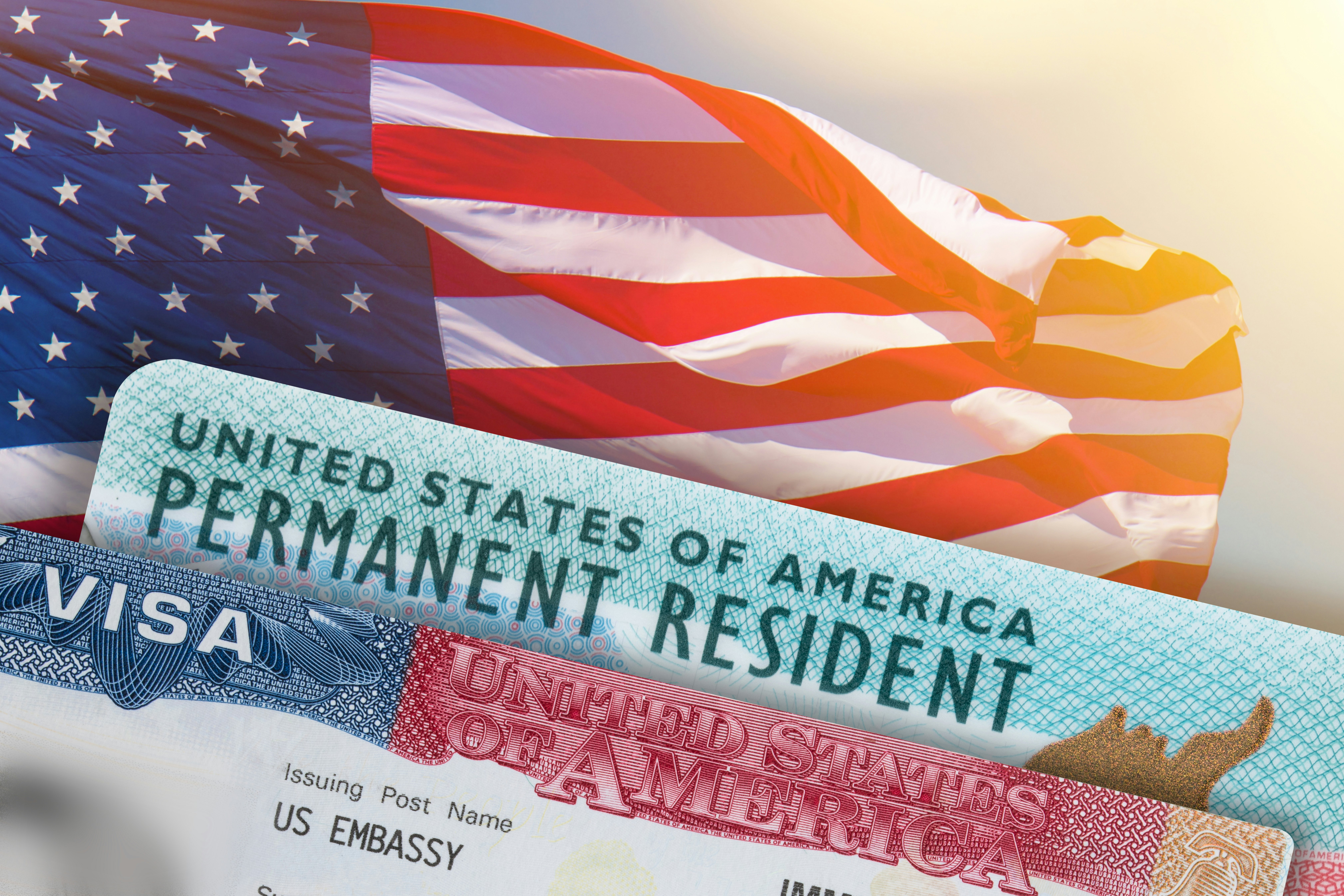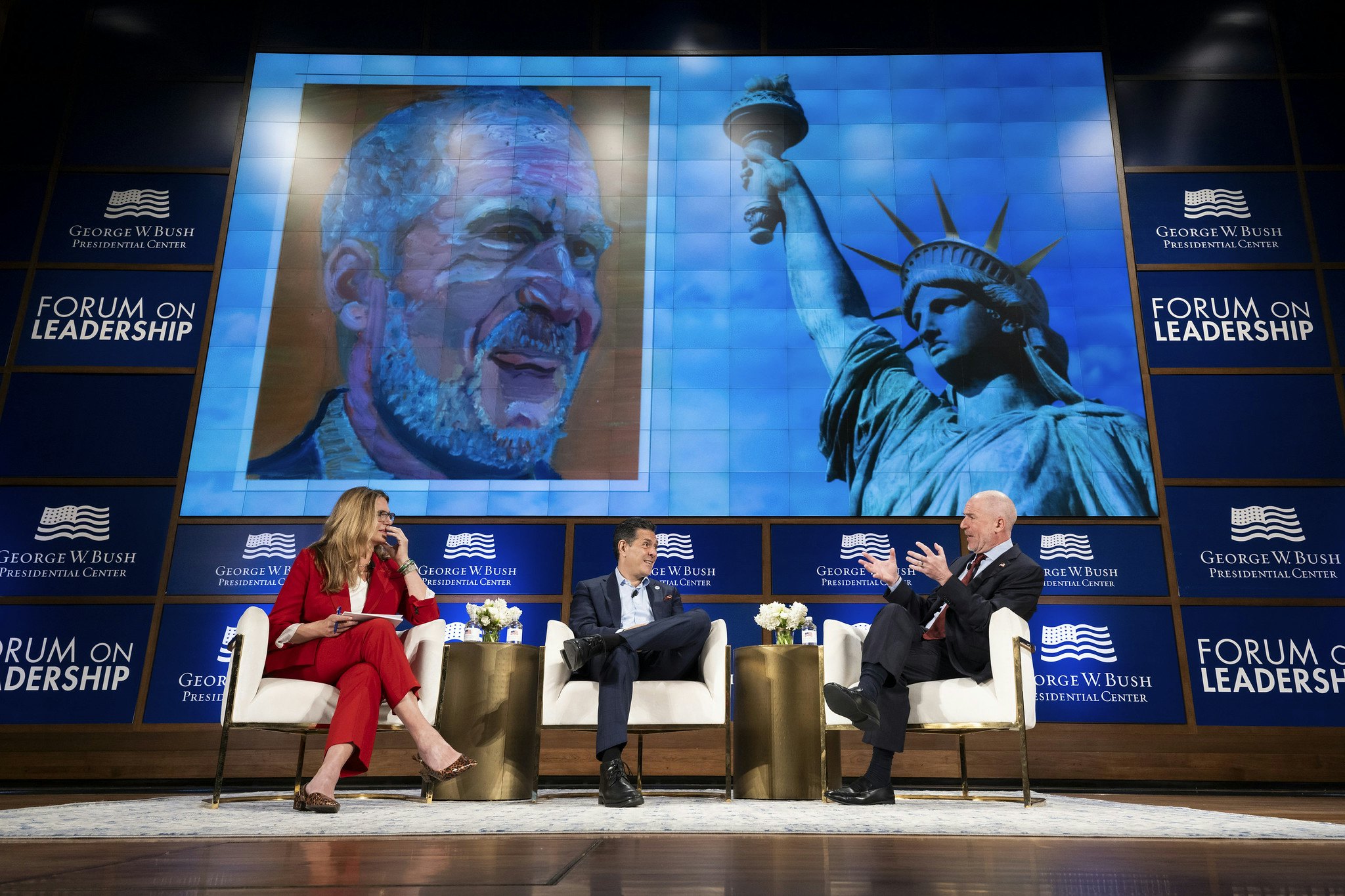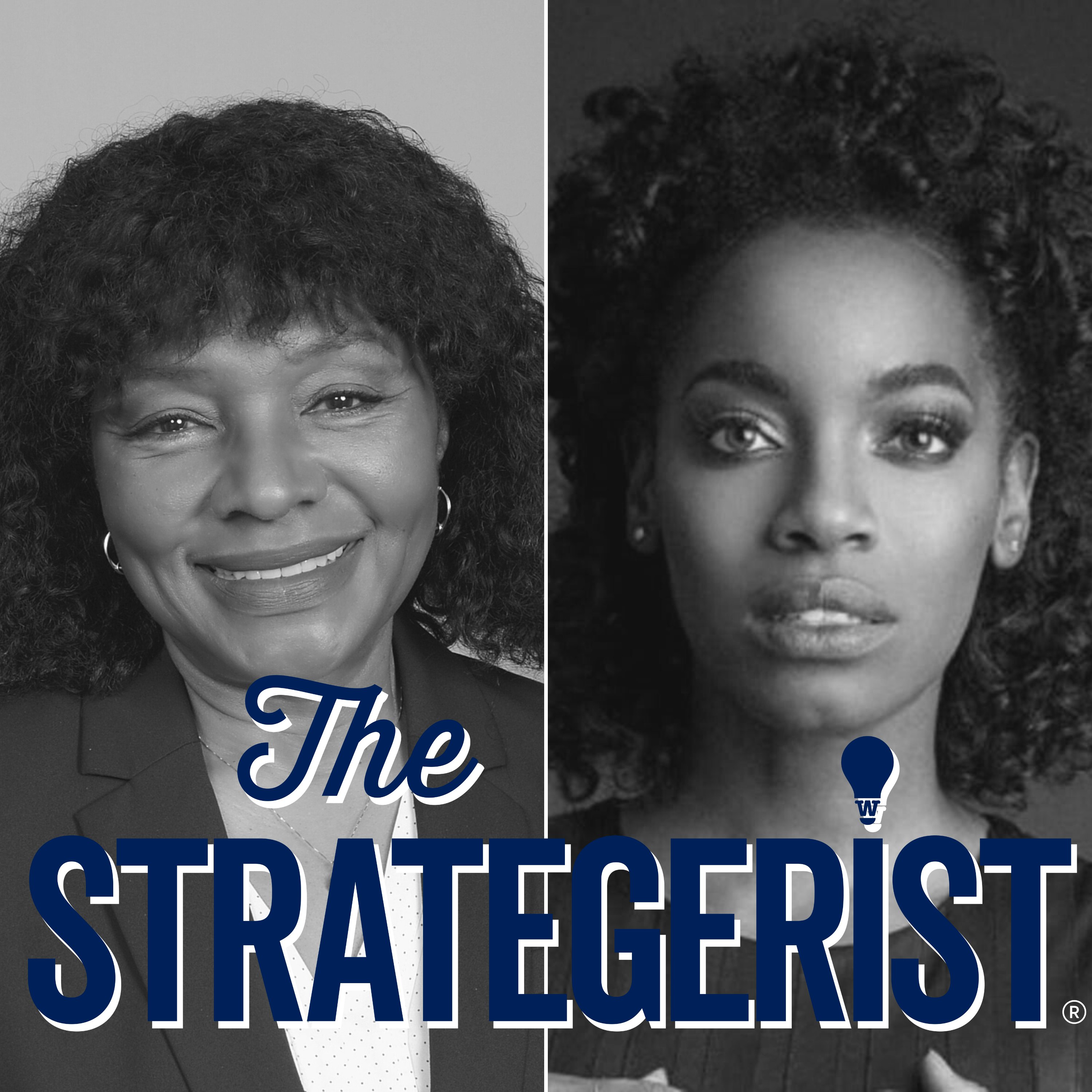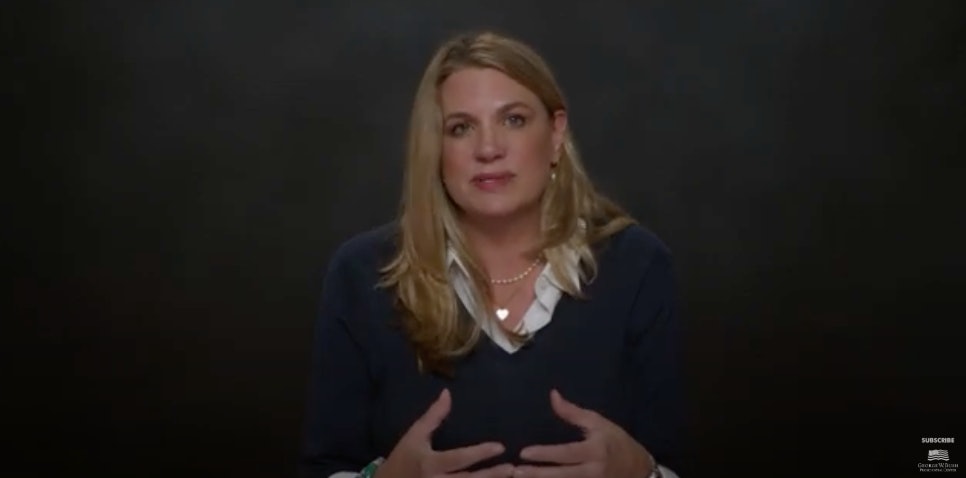Q&A with Josh Jabin, Chief Operating Officer of the Travis Manion Foundation
Please tell us about the Travis Manion Foundation’s mission and what motivates your work to strengthen communities, and empower veterans and their families.
The Travis Manion Foundation (TMF) is a community – led by veterans and families of the fallen – that serves together and supports each other. Our mission is to empower Veterans and Families of the Fallen to develop character in the next generation. First, we invest in those veterans and then give them opportunities to serve and lead within communities across the country. Men and women like Travis made the ultimate sacrifice for our great nation. It’s our job to ensure their legacy of service continues and future generations have the privilege to live in the greatest country the world has ever known.
Note: Marine 1st Lt. Travis Manion was killed in action with Iraqi insurgents in Al Anbar province in 2007. A former All-American wrestler and graduate of the U.S. Naval Academy, he was fatally wounded by an enemy sniper while aiding and drawing fire away from his wounded comrades. He was posthumously awarded the Silver Star.
What do you think makes the Veteran Wellness Alliance unique?
We look at how to combine our collective resources in order to serve all veterans throughout the spectrum of mental health and well-being. There are some veterans who are in crisis, there are some veterans who are thriving, but the majority of veterans are in between. As a collective, it’s our job to provide resources and opportunities for all veterans to move toward thriving – and stay there – no matter where they currently are in that spectrum. The Veteran Wellness Alliance provides clinical and nonclinical support to empower all veterans to thrive.
Tell us about your military service and how you became involved in your work with veterans.
I served 20 years in the Marine Corps (12 active duty and eight reserves). I graduated from the U.S. Naval Academy in 2001 and was wrestling teammates with Travis Manion. When we lost Travis in 2007, I became a volunteer with TMF in order to honor my friend while on active duty. My transition from active duty in 2013 was like the majority of veterans: I struggled. I got a job right away, but there was something missing. Like most veterans, I missed having a mission and being part of a tight team. TMF provided both, and, when the opportunity opened up to join TMF as a staff member, I took it, and it’s been one of the best decisions I’ve ever made.
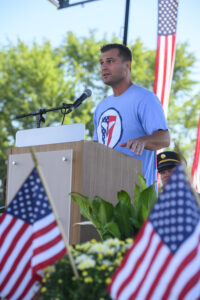
Based on your experience, share what you have learned about the importance of veterans and their families continuing to serve in their communities.
Veterans are civic assets who are needed in their communities. Veterans are uniquely qualified to solve difficult problems just like we did on active duty. Veterans are also uniquely qualified to mentor youth about character and leadership. We are one of the few groups left that are largely admired and respected by the American public. Additionally, serving others provides that sense of purpose that is critical to achieve higher levels of mental health and is also one of the most important factors to avoid negative mental health. It’s a true win-win for both the community as well as the veteran.
What are signs people can identify when a veteran may need help, and how should someone prepare for such a complicated conversation?
The most important signs unfortunately may be difficult to detect, so we have to be very intentional with our relationships. We have to be aware when someone acts differently or “off.” That may be very subtle, but the sooner we recognize it, the sooner we can intervene and the greater chance we have at moving that person toward thriving and away from crisis.
Too often we think that someone has to do something drastic for us to think they need help. Most people (probably all) have experienced increased anxiety or depression. These are normal human reactions to life. And there are clinical and nonclinical ways to help people cope with these very normal conditions. Identifying when someone is “off” starts with ensuring that we are checking in with people and really paying attention to them. If you think that someone has an unmet mental health need (such as anxiety or depression) or is at risk for suicide, it starts by showing that you care and being direct. If you come from a place of caring, you don’t have to worry about upsetting someone.
My approach is to invite them to a TMF event with the hook of serving others. Veterans have a hard time saying no to helping other people, so that usually works to get them in the door. Getting them out of their house and serving with other people is a huge dose of therapy. That may be the spark to get them moving back in the right direction on the well-being spectrum. Or I may be able to get close enough to detect that they have an unmet mental health need. If I come from a place of compassion and caring, I am usually successful asking them to allow me to refer them to Check-In so that a trained professional can call them and get the process started to provide them the clinical care they may need.
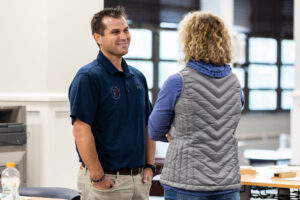
What are you most looking forward to or what gives you hope for the future of wellness in the veteran and military service space?
I’m excited to truly move the needle on the biggest problem of our generation: veteran suicide. There are so many resources and great organizations that are making a difference but it’s not enough. Suicide is preventable, but it takes each one of us playing our role. We have the clinical resources to help veterans in need, but it’s not sufficient if we can’t get veterans connected to those resources.
Where I think we can truly make a difference is with our proactive approach to mental health and well-being. If we can get veterans to join organizations like Travis Manion Foundation or any of the Veteran Wellness Alliance peer organizations, then we [can] ensure that every veteran has a sense of purpose and a support network to help move them toward thriving and away from crisis.
Peer organizations offer a nonclinical approach to mental health that is sufficient for many to avoid some of the negative problems that come from isolation. Peer organizations are also effective identifying when someone has an unmet mental health need and referring them to one of our clinical partners in the Veteran Wellness Alliance. We need to be on the offense instead of waiting for something to become a problem. Each peer support organization offers a unique way for veterans to engage based on their interests. Find the way that you want to serve or connect and get involved today.
Learn more about the Veteran Wellness Alliance.




